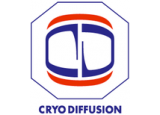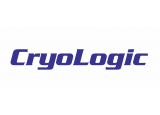Embryo implantation is the first contact between mother and fetus. Failure of implantation causes infertility. However, the mechanism and the signaling system underlying embryo implantation have not been completely elucidated yet. A group of Japanese scientists has shown the pivotal role of Gp130 in the implantation process.
Embryo implantation is regulated by progesterone hormone (P4) and 17β-estradiol (E2), which are produced mainly by the ovaries. A transient nidatory surge of E2 induces embryo attachment through leukemia inhibitory factor (LIF). LIF-deficient females exhibit infertility due to the failure of embryo attachment.
Scientists generated Uterine epithelial-specific Gp130 deficient (Gp130 ecKO) mice. Females were mated with a fertile wildtype male to obtain pregnant samples. The first day of pregnancy was defined as the day when the vaginal plug was first observed. In this case levels of E2 and P4 were similar.
Histological analysis showed that all the necessary morphological changes prior to embryo implantation have taken place in the urine epithelial tissue in Gp130 ecKO group.
Scientists checked the gene expression of GP130ecKO mice and found 484 genes with altered levels of gene expression. The gene expression has been increased in the case of 338 genes, including some target genes of E2. There were 146 genes with a depressed expression, some of them are P4-dependent and LIF signaling conditioned activation: it is well known, that P4-signaling has a crucial role in the process of making endometrium susceptible to the embryo. Moreover, it has affected immune response depressing mechanisms, which have a crucial role in embryo implantation.
As the previous experiment has not identified any violations of cell proliferation, researchers measured the level of the protein mucin-1. The last one blocks cell adhesion in the normal endometrium. However, there were no identified differences between Gp130 ecKO and control mice.
Then researchers focused on the protein SNAI1, which controls epithelial remodeling. Besides, there were not any significant changes in the expression of SNAI1, there were much fewer SNAI1-positive cells in uterine epithelial tissue. They noticed also changes in gene expressions of SNAI1-dependent genes, such as KRT8 and CDH1. These genes participate in cell adhesion as well.
Therefore, uterine epithelial remodeling has a crucial role in embryo implantation, which is regulated by LIF_LIFR/Gp130 signaling system. That’s why the absence of uterine epithelial Gp130 can lead to infertility.




-160x115.png)























